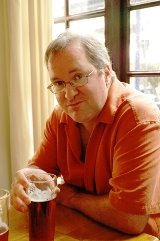 At this time of year most journalists will write a short piece on what they consider to be the sad losses of the past twelve months. Anecdotes about deflated politicians will be wheeled out once more to demonstrate that, with their demise, society has lost a link with an older, more moral, age. This lazy approach to writing applies as much in the blogosphere as in print. Here at Mishmash Bookshop the most deeply regretted death of all is a sport; Pro Tour Cycling.
At this time of year most journalists will write a short piece on what they consider to be the sad losses of the past twelve months. Anecdotes about deflated politicians will be wheeled out once more to demonstrate that, with their demise, society has lost a link with an older, more moral, age. This lazy approach to writing applies as much in the blogosphere as in print. Here at Mishmash Bookshop the most deeply regretted death of all is a sport; Pro Tour Cycling.
I first got interested in cycling in the 1980's when, working as a porter in a residence full of Spanish students, I followed Stephen Roche as he battered his way forward to take the Tour de France on the last day, and by the narrowest ever margin, from Pedro Delgado. I have loved the Spanish people’s commitment to the sport ever since.
I went to Dublin for the infamous start to the 1998 Tour, where supporters cheered the Festina team onto the podium to sign on for the race despite having been arrested for drug smuggling the previous day. I saw the roll-out the following morning [which felt more like a mystical religious experience than anything I have witnessed in a church] and stood next to Garret Fitz Gerald , the retired Taoiseach, as an equal penitent novice, to see Mario Cipollini and Marco Pantani off on their forty days in the wilderness.
Lance Armstrong straddled the Millennium years of the Tour de France. He took seven consecutive wins between 1999 and 2005; and this after recovering from two deadly bouts of cancer. He still splits the sport along lines that are neither professional, nor national, nor generational. His fans [and I am one of them] will tell you he is the hardest working champion in the toughest sporting competition on the planet, bar none; his detractors complain he is an elusive drug cheat who has , somehow, ruined the sport for everyone. And then Lance retired…
This years Tour looked to be the most openly contested in almost a decade. From a field of about eight serious contenders for the maillot jaune, two stood out. Jan Ullrich, for whom the domination of Lance Armstrong had served as an alibi for always coming second; and Ivan Basso, lead rider in former champion Bjarne Riis’ new Team CSC. CSC were revealed by an interesting cinema bio-pic, Overcoming, to have a guiding principle of mutual support, rather than the usual internal competitive hierarchy. And they seemed, for cyclists, to be relatively opposed to le dopage.
But on the very eve of the race, both Basso and Ullrich withdrew, having failed drug tests, along with fifteen other riders. They could make their way to the front without the internecine power struggles, it seemed; but not without the EPO and the steroids. The Tour was devastated, but opted to carry on with the few remaining moderately well-known riders. It limped on for the duration, and was won in the late stages by American Floyd Landis; and then to cap it all Landis failed two drug tests within days of his victory. I turned my back; if you asked me I couldn’t have told you who the maillots recipient wearer was [in fact I had to check – it was Oscar Pereiro].
I won’t return to supporting cycling again, unless there is a huge cultural change in the teams, the management, and the sponsorship regime. I just couldn’t sit watching the helicopter shots, arguing the toss between my heroes and my son’s, or discuss team tactics with Catalan taxi drivers, while it’s about cheating. The sport is effectively deceased, and leaves a swathe of grieving fans behind it.
Andrew Mishmash
 Mishmash Bookshop we have long been in the habit of placing a small sign in the window when one of our heroes dies. The declaration of our good wishes will help pave their way to heaven, we hope; people might come in and feel they have found a kindred spirit; and it might bring us some karma, or kudos.
Mishmash Bookshop we have long been in the habit of placing a small sign in the window when one of our heroes dies. The declaration of our good wishes will help pave their way to heaven, we hope; people might come in and feel they have found a kindred spirit; and it might bring us some karma, or kudos.






